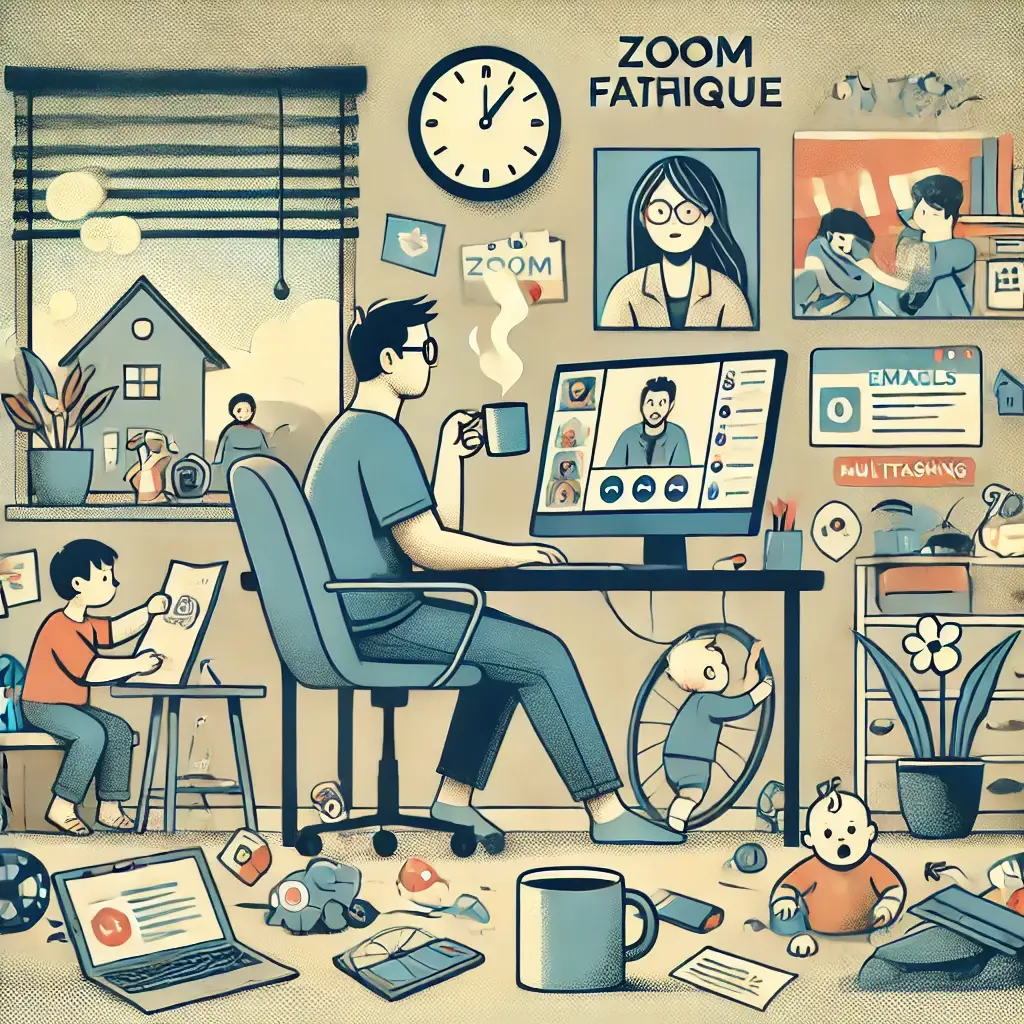Since the onset of the pandemic, there has been a rise in the number of people working remotely. Working from home was perceived to be the most pleasurable thing, away from the office, and free from the hassles of commuting to work daily. However, the reality turned out to be different from our imaginations.
Migration to the use of remotely working software presents some challenges that include maintaining productivity in an environment that has a stark contrast to the workplace atmosphere. <
Understanding Zoom Fatigue and Its Triggers
Zoom fatigue is the feeling of overwhelm and exhaustion after a long day of video conferences. This feeling can be triggered by occurrences such as poor audio and video quality, a short span of focus due to distractions, network malfunctioning, and a host of others. All of these are liable to cause mental drain faster than real-life meetings.
The Link between Working from Home and Unproductivity
Video conferencing is not the only stress you encounter while working from home. Other things such as the constant email notifications, messages from social media platforms, and other remote working applications, together with managing home disturbances such as yelling kids, noisy neighbors, and chores further frustrate your efforts at productivity and leaves you in a state of constant mental overwhelm.
How to Avoid Zoom Fatigue According to Security Analysts.
While Zoom Fatigue might be an unprecedented experience for some, security analysts have always had to deal with similar stress daily. In this article, they offer some advice to help the newbies. Read on
Start by breaking down tasks and assigning each task a specified time:
You might be wondering how to navigate through the bulk of the workload you have to complete. The best way to handle this without stirring a feeling of overwhelm would be to take every task piecemeal. Break down all tasks into the tiniest bits and allocate to each task a specific block of time. This would help manage your focus and improve your productivity.
Utilize Automation mechanisms:
Adopt an automation mechanism for repetitive tasks; this saves time, mental, and physical energy. The Idea is to ensure that your tasks consume as little as possible of your energy. Invest in software that helps automate repetitive tasks.
A practical example would be automating response to messages or using a text to speech option instead of typing.
Relegate tasks:
You should not put it upon yourself to handle all tasks in a bid to convey or portray competence. When at wits’ end trying to figure solutions to a problem, there is no shame in channeling the issue to other channels or people at a higher level with a better chance of proffering a solution.
Take breaks:
Resist the urge to work around the clock or always be available. Exhaustion is not a badge of honor. Take productive breaks away from anything work-related and do more relaxing stuff. This rejuvenates you and keeps your mental spirit high.
Conclusion
Working from home is not convenient for most, but the situation warrants that one adapts to new modalities. This comes with several challenges and un-pleasantries. To keep up your productivity, and ensure you make the most out of your work time, take up practices that relieve your burden and ease your task to prevent burnout, fatigue, and overwhelm.




